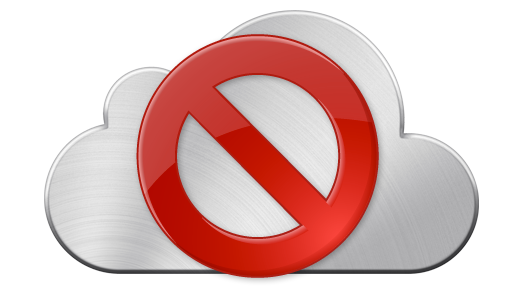10 arguments against email migration to Microsoft cloud
- Transfer

Today, everything from stalls to international corporations offers to transfer their data to the cloud. And if there are no questions with storing your photos from vacation, then in the case of corporate data there are always a lot of questions and doubts. For example, is it worth transferring company email to the cloud services of Microsoft Exchange Online or Exchange 2016 On-Premises, or is it better to keep your own mail service? Let's see what reputable Microsoft Exchange experts think on this subject.
Those who work with Exchange 2013 or 2016 can take advantage of the latest Microsoft email products. High Availability, Site Resiliency and so on. What else to add to this? Why change the usual scheme, move boxes in Exchange Online, and even pay for it?
Of course, new communication methods are now available that were originally born “cloudy” - Facebook, Yammer. But email is over 20 years old. And it feels like when newfangled services are replaced by even more newfangled ones, e-mail is still not going anywhere. What can the “cloud” give us?
Panelists:
 Tony Redmond: author of several Microsoft Exchange books, Exchange Inside Out, maintains an author column in Windows IT Pro, multiple Microsoft MVP status holder.
Tony Redmond: author of several Microsoft Exchange books, Exchange Inside Out, maintains an author column in Windows IT Pro, multiple Microsoft MVP status holder.  Greg Taylor: Product Manager, Exchange Customer Experience He was responsible for the most advanced Microsoft Exchange Certified Master training and certification program.
Greg Taylor: Product Manager, Exchange Customer Experience He was responsible for the most advanced Microsoft Exchange Certified Master training and certification program.  Ross Smith (Ross Smith): takes a position similar to Greg, but in the field of Office 365.
Ross Smith (Ross Smith): takes a position similar to Greg, but in the field of Office 365. Scott (Schnoll) Scott Schnoll: In the past - Senior Content Developer in the Exchange Server team, and now - Senior Program Manager in the Office 365 CXP Market Development team. He is the author of dozens of the most technically sophisticated Microsoft Exchange sessions.
Scott (Schnoll) Scott Schnoll: In the past - Senior Content Developer in the Exchange Server team, and now - Senior Program Manager in the Office 365 CXP Market Development team. He is the author of dozens of the most technically sophisticated Microsoft Exchange sessions. Office 365 is a completely different environment. With a different scheme of product development, operation and management.
More resources. Much more than the average CIO approves. You never have enough servers, storage space, everything is always in short supply. But everything is in the cloud.
Better integration with other applications. Remember how much pain it cost to set up integration of SharePoint and Exchange, which is more like shamanism with a tambourine? Everything in the cloud will work, because the people who serve it are paid for it - and there is no one to blame. They will not leave work until it works.
And, in our opinion, Exchange Online is safer than most On-Premises installations.
When something breaks down in Office 365, no one knows what is going on. Everyone opens up Facebook, Twitter, blogs and begins to figure out how global the problem is — it all broke, or just one. There is monitoring in On-Premises, there are warnings - if something is broken, I will be the first to know about it.
Tony: You manage everything and see what exactly broke - the network, server, application, or maybe there was a problem with the external connection. You control everything and you can fix it yourself.
Recently, Office 365 has globally crashed four times. And no one had any information about what was happening! When something broke in Office 365, the diagnosis in the form of a social survey via Twitter is more informative than any other method. Microsoft is the last person you learn about the issue. Why all these adventures when there is reliable On-Premisesises?
Greg: Monitoring that we did in Exchange On-Premises is not so good :) I would rather believe that your users will report problems with mail than monitoring does. And it will be so - the director will call and say that his letter does not go away.
And in case of breakdowns in Office 365, you have a wonderful Service Health Dashboard, which shows how this or that service feels. And you will learn all messages about breakdowns and scheduled maintenance from the Message Center.
Tony : All this is nothing more than a figment of Greg’s imagination. Normally, there is no breakdown information in the Service Health Dashboard.
Greg: Then you can call technical support, it answers 24 * 7. You tell us about the problem, we understand. Well, the fact that Service Health Dashboard is not updated, so it means that it broke with Exchange. For this case, we have a backup option - Emergency Broadcast Center, to which you will be automatically redirected. And if he breaks, then ... In general, we are planning many more improvements in terms of self-diagnosis.
Office Graph technology, which tracks employee activity, and Office Delve, which provides global search across all cloud data, leave the impression of a “Big Brother” looking after you.
Tony: Microsoft is slowly gathering information about what e-mail messages employees send to each other, how many meetings they participate in, as well as 40 other other parameters of your work. Soon, Office 365 will learn to spy on whether you fell asleep at an important meeting, and immediately automatically send a report to superiors.
But companies that respect the privacy of employees (I wonder if there are any?) Do not want Office Graph to record metadata associated with it. When working in Office 365, you cannot help feeling that your every movement has been studied and recorded.
Even if you really need such information, you can extract it from Exchange without Office 365.
Greg: But global monitoring opens up amazing opportunities for you. You can find out:
- with whom the employee works most closely;
- what documents and agenda are most relevant for my colleagues at the moment;
- what matters most to my boss;
- how many more employees are working on the same task.
And all this information can be used in related products. You can improve your content management or control system by giving it data about what documents your employees create and what information they exchange.
Microsoft does not backup Office 365. Generally! Backups are good. And if the administrator or user does something irreparable? Or we are attacked by an encryption virus, and then we need to recover data? What then?
Tony : Exchange administrators have the same data protection mechanisms as in Office 365. We make additional copies of the databases, enable retention for mail items, and set the retention time for deleted mailboxes. But in some cases, a warm tube backup is vital.
Ross: We use Native Data Protection, which replicates data between 4 data centers in each individual region. And even when you delete a user, in fact, he is not deleted, and his mailbox is stored even longer than soft-deleted in On-Premises. And you can disable bad, dangerous cmdlets.
We believe that backing up as malware protection is the wrong way. A good antivirus will protect you from data loss much more reliably. We have very advanced security features. Now even the “0 hour auto delete” mechanism has appeared, which deletes emails from malware, even if they are in the mailbox.
So neither we nor you need backups in Office 365.
Exchange is at the center of the complex ecosystem that we built for our business goals. If we switch to Office 365, it seems that we will need expensive improvements.
Tony : The success of SharePoint and Exchange is mainly based on the fact that there is a large ecosystem of independent developers who modify products to meet business requirements, filling Microsoft’s gaps.
In relation to Exchange, these are monitoring, security, journaling, archiving, work with electronic signatures. Office 365 is the killer of innovation. It is sad.
Greg : We left you Autodiscover, EWS, REST, Auth / Oauth and many other abbreviations - use them as an interface for your applications to work, and everything will be fine. It's time to write a loud-ready application.
To give users a quota of 50 GB - only encourage them to litter their mailbox. If such a quota is needed, taking into account how well Exchange 2016 works with JBOD, then we ourselves can make a storage of such capacity for very modest money, without Office 365. What should we admire?
Greg : Sometimes a lot is too much. Unlimited space leads to the collection of advertising mailings, no one bothers with garbage disposal.
Huge mailboxes make it difficult to find compliance systems. And if the requirements of the regulator oblige you to keep copies (backups) of mailboxes for the next 200 years, then you will definitely find yourself in a difficult situation.
Tony: Actually, it's fantastic to store everything in a row without rotation, archiving, and other labor-intensive processes. And finally, this is your chance to get rid of ABSOLUTE EVIL - damned pst-files. Let people finally focus on work, instead of shoving letters on a heap of archive files.
In the provinces, the Internet often does not work very well. Apparently, the cloud in such cases is not an option.
Greg: This, of course, is the cloud storage Achilles heel. But now the situation with the Internet is improving. Although we have one client on oil platforms in the North Sea there is a “tropospheric signal reflection radio system”. So, during a storm, it doesn’t work very well. Therefore, we also have scripts for offline access. Our customers use Exchange even on submarines, and some launch Outlook in space.
But even with an excellent Internet connection, you can encounter problems with reliable data transfer. The problems of the last mile with intermediate providers have been known for a long time. That is why in recent years we have made huge investments in improving the work of Outlook with Exchange in the conditions of an unreliable connection.
Tony: I have been using Office 365 since its inception. I used it in dozens of countries, in different hotels with terrible internet. So, there was not a single case that I could not access my mailbox. Yes, maybe not through Outlook, this fat piglet. Access through a browser (OWA) and ActiveSync has always worked.
Yes, I have not been in submarines or in space, but Office 365 worked in all other places.
I do not trust Microsoft with my confidential information. Who can be sure that they are not viewing it and are not selling it to the government?
Tony: In On-Premises, you control everything. Servers, network, data storage system. But if you lose control of your private data, this can lead to disaster. Yes, Microsoft is showing some success by upholding in court the right not to give the US government access to mailboxes located in Ireland. But ... In some cases, they will be required to do so. Better we keep our mail to ourselves.
Scott : Office 365 meets a range of information security standards. Microsoft lawyers, the best experts in the field of information security, are on your side, and information on how we protect your data is completely open.
On the other hand, it doesn’t matter what you bought, Exchange On-Premises or Online - from now on all your data already belongs to us. Joke.
Tony : Somehow it's not very convincing.
Scott : Actually, we are absolutely serious. Honestly, Microsoft knows the product better, we have more resources, and our administrators are more professional than most others. Yes, in On-Premises you can very, very carefully handle data. But for most customers, we are doing a service that they can never do for themselves.
Office 365 requires customers to keep their software platform up to date. You must constantly update Exchange 2016 (for hybrid scenarios) and Outlook so that it can connect to the cloud. Too much effort, too little return.
Tony: Every day Microsoft releases a huge number of changes that are not clear why they are needed, and which you did not order, but they will happen anyway. And you need to keep up with them - update everything that is updated. As you explain to users this avalanche of changes, when the functionality appears and disappears. And it is impossible to control. Innovation is great. But sometimes I would like to take a break from these endless upgrades in the midst of the close of the fiscal year.
Greg: And On-Premises also needs to be updated regularly, otherwise you will be stuck in the Stone Age. Most products are updated automatically, such as Office. Approve updates - and no problem. Disapprove and get security issues. We update you very carefully. This is not a script like “bang, and nothing works”, most of the updates you simply will not notice.
Public folders is a technology that many customers still want to use. Why should we just throw it away, spending time changing processes and exploring new collaboration tools? How many Microsoft did not try to "kill" them, they always came back.
Greg : I have nothing to say in favor of shared folders. Just public folders are NOT an OPTION. And that’s it.
Tony: Public Folders were pretty good in 1996. They survive like a cockroach. But now we need new ways to work together. The time has come to bury them.
Microsoft will support Exchange 2016 until 2025. So we can take the time to migrate to Office 365.
Greg : Yes, Exchange has 10 years of technical support. And even if customers need longer support, that is, options. But what will you do with him in 2025? Do many of you work with Exchange 2000? Do you want to work in On-Premises - please. But if you want to work with the most advanced secure technology, welcome to Office 365.
Tony: Perhaps Exchange 2016 is the latest version of Exchange. May be. I do not know the plans of Microsoft. But no matter how hard it is to say, his time has passed. Do not stay the last passengers of a sinking ship. It seems to me that serious changes await us in the next 10 years.
We see how cloud technologies are developing, how many dynamics and innovations are in them. But this does not happen with the usual On-Premises product. Look, all we have is small, but useful cumulative updates. And the new technologies that come with them are just an adaptation of those that are already available in the cloud.
Want an old-good-reliable server with On-Premises software? You are welcome. But if you want to follow the innovations, use the most advanced achievements, then you have the only option. Go to the cloud. Microsoft's slogan is mobile first, cloud first. There is no place for On-Premises in it.
Whatever you decide for yourself - go to the cloud, or stay in On-Premises - this is your choice. We just gave you some food for thought. Thanks for attention.
